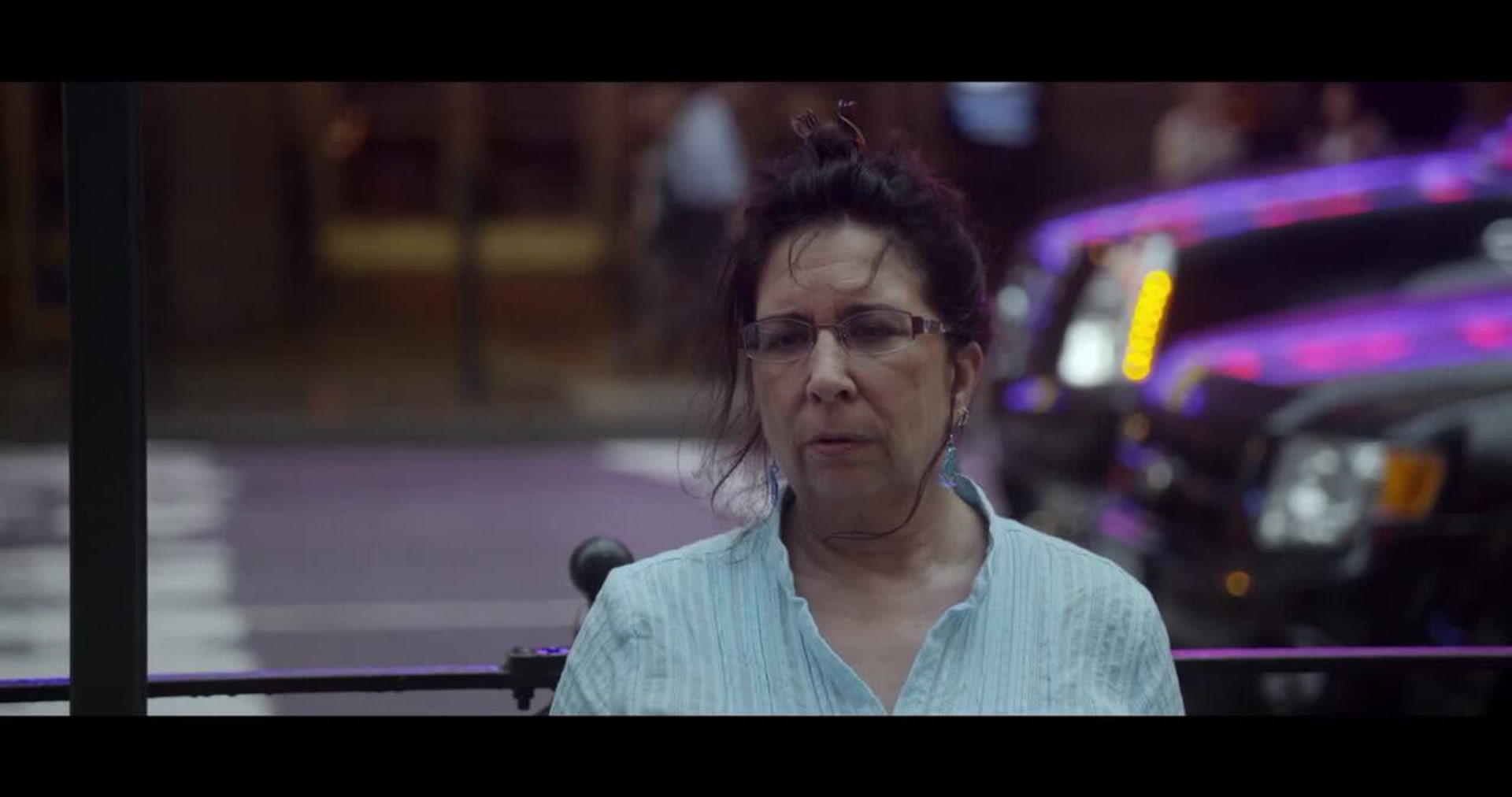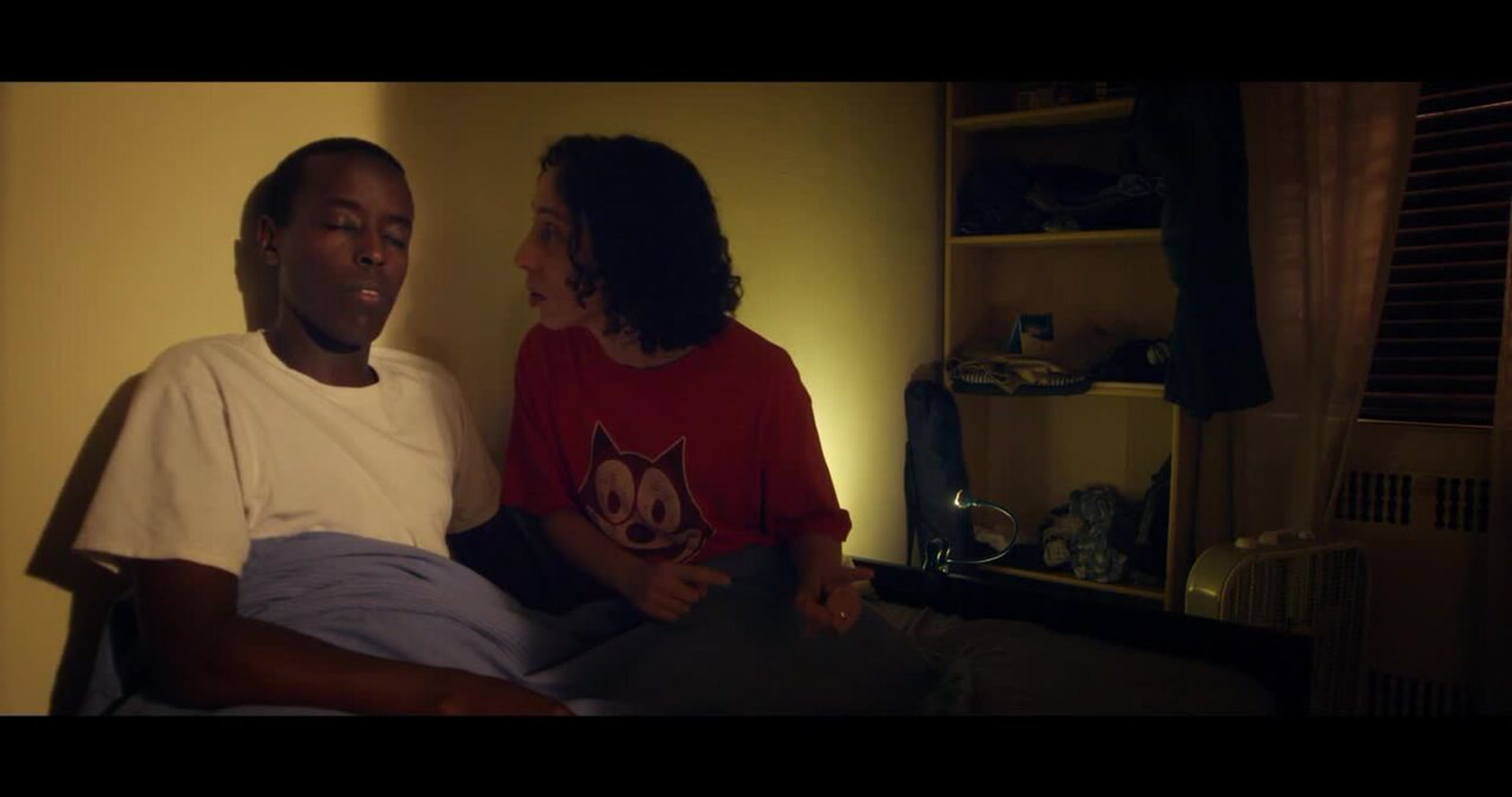The Advocate: I really like Tomorrow Ever After's social media accounts where you post inspiring images and quotes from the future. How do you maintain such optimism for a vibrant future in the face of an administration that denies climate change?
Ela Thier: I don't think of my portrayal of the future as optimistic; I think of it as realistic. Climate change in particular has made it clearer than ever, if it wasn't already, that organizing our society around profits rather than human needs is untenable. Either we self-destruct, or we create societies that work well for everyone, not just for the few.
Between self-destruction and creating a rational society, we have to operate with the expectation that we will solve even our biggest problems. That's the only perspective that can keep us behaving, well... rationally. If nothing we do ultimately works, I want to go down having tried, not because it's "the right thing" but because my life is better when it's pointed in a good direction, regardless of whether what I do will ultimately work.
As for the current administration, I don't see the Trump administration as an aberration from the course we've been on. I see him as a symptom and not as the problem.
Trump is an X-ray of what's been going on that's been covered up with hypocrisy for years. He's useful because he's transparent. Corporate America owned Washington already -- all he did was cut out the middleman. Why pay politicians to do your bidding when you can just take over and run things yourself? We get to see full out all that poison and ugliness that's been running our government all these years and has gotten us to this point. It's uncomfortable and horrifying to see it, but better we look right at it than pretend.
I'm not diminishing the fact that so many people in this country and around the world will suffer because he was elected. But the suffering isn't new; 20,000 children have been dying of poverty every month around the world long before he showed up, despite us having the resources and technology to see to it that everyone is fed. I'm not optimistic. I'm simply doing the job that all of us get to do: imagine what else is possible. What if we took nothing for granted as "inevitable"? What societies might we envision?
I find Tomorrow Ever After simultaneously funny and tearjerking. As the writer, director, and star of the film, how do you strike that tonal balance in your filmmaking
Laughing and crying, both equally valuable, is how we heal from the pain that we carry. Artists have, for centuries, been creating safe spaces for people to get to do just that.
We live in a culture where that gets shut down: Don't cry, it'll be OK, be a big boy, have some ice cream, have a drink, have some pills -- anything but feel. We're only allowed to cry in funerals and weddings. If you're a gal, there's more permission to cry, and even that, only to a degree and only for so long. Outside of those contexts, the only place you get to laugh out loud and cry without a well-intended worried person trying to stop us -- is entertainment. Artists have kept us sane for centuries by getting us to laugh and cry.
I'm out to make movies that open our hearts and help us feel. If being an intellectual were a solution, we'd solve the world's problems by now. We don't lack intellect; what we lack is openheartedness, generosity, and kindness. That's the kinds of "smarts" that I'm going for.
I often laugh out loud while I write scripts, but once I write those final moments that make me cry, I know I have a movie. If my screenplay hasn't made me cry, it's not ready for production.
You emigrated from Israel and made a film about that experience called Foreign Letters. Can you speak to the importance of immigrant voices in a time of travel bans and border walls?
I don't want to deny the pseudo privileges that come with being a white immigrant; it's definitely a different experience. But one of the things all immigrants have in common is we know in our bones that there's another way to be in the world. When I'm around Americans, I can see where we're limited in our views, in what we think is possible between people, and I feel so grateful that I've seen another way to be. Conversely, when I'm around Israelis and see where my people are stuck, it's useful to them and to me that I know that something else really is possible.
The more variety of people and variety of perspectives that we have, the better off we are. This isn't something I read in a fortune cookie; I know this experientially. The experiences that immigrants bring with them make all of us smarter, more so than any college degree.
It's also why I would argue that if U.S. imperialism hadn't militarized Israel and the Middle East, it would be good for Israelis to have Palestinians living among us, and good for Palestinians to have Israeli Jews among them. In a rational society, our tapestry of cultures would mutually benefit each other. If it weren't for British and later U.S. imperialism escalating the violence and oppression in that region, we would feel fortunate to live together. This is also why I made a point in the film of presenting my character as Jewish and then had her speak Arabic in one of the scenes. That's the kind of future I imagine.
In Tomorrow Ever After, your character Shaina points out "the great despair" of isolation between people in contemporary times. How do you counteract that isolation in your life?
I wish I were as openhearted and trusting as the character that I play. But truth be told, I'm as much coated in isolation as everyone else. What's useful is to reach for a picture, or even an aspiration, that will poke holes in this "blanket of isolation" as my character describes it in the film.
We live in an oppressive society that goes out of its way to erode community. We leave people we've known for years to take a job somewhere or because we think a change of scenes will change the emotional baggage that keeps us isolated no matter where we go. Of course that's an illusion. We prioritize money and a romantic relationship over the circle of people who've known and loved us for decades. We're pointed towards owning a house with a picket fence as the end-all, and then find ourselves depressed with our materially rich but meaningless lives when we're done painting that fence. We're trained to dismiss the importance of community.
I think one thing we can do is make it a stated goal to build community. My dream is to know all my neighbors and have lifelong, deep relationships with the people I live near. I'd like to think that these "dreams" at the very least point me in a good direction, even if I don't accomplish them, or don't accomplish them to the degree that I would wish.
I appreciate the imagination it took to visualize a world in 2592. Can you speak to why we must visualize the world we want before we achieve it?
I appreciate you making an excellent point by disguising it as a question! We do need to visualize the world we want in order to achieve ... at least something.
Individually, in our relationships, in our local communities, and on a global scale, goals are rarely ever met without first being stated. Goals that are a real long shot, that are super challenging to achieve, and the best goals are all that, have to get spelled out so we can keep on stepping when we can't see the trees from the forest and the feeling of discouragement knocks us off our path. If we don't have our long-term goals, we give up too quickly because we forget why we're working so hard. But if we only have long-term goals and we don't state the short-term goals that will get us there, we remain in a state of silly pipe dreams and we don't take concrete steps forward.
All that said, did you know that when we first traveled to the moon, we stayed on the course that had been charted out about 3 percent of the time? I learned about that while taking a course on film distribution, and it was so consistent with my experience: You have some idea of where you're going and how you'll get there, and your plans come to fruition about 3 percent of the time.
I don't expect that we'll create the world that we imagine. But that's only because we'll inevitably create something much better than that. I bet the future will be even better than the one I depict in my movie. But even though we have no idea where we'll end up, we have to imagine something in order to keep on taking interesting and challenging steps forward.
As my character says in the film, our imagination is our key weapon. For now, it's our only compass to move us towards a destination that we can't currently know.
Watch an exclusive clip from the film below.
Get tickets to see Tomorrow Ever After opens theatres in New York and L.A. on May 5. Follow the film and follow Ela Thier on Twitter.






































































Charlie Kirk DID say stoning gay people was the 'perfect law' — and these other heinous quotes